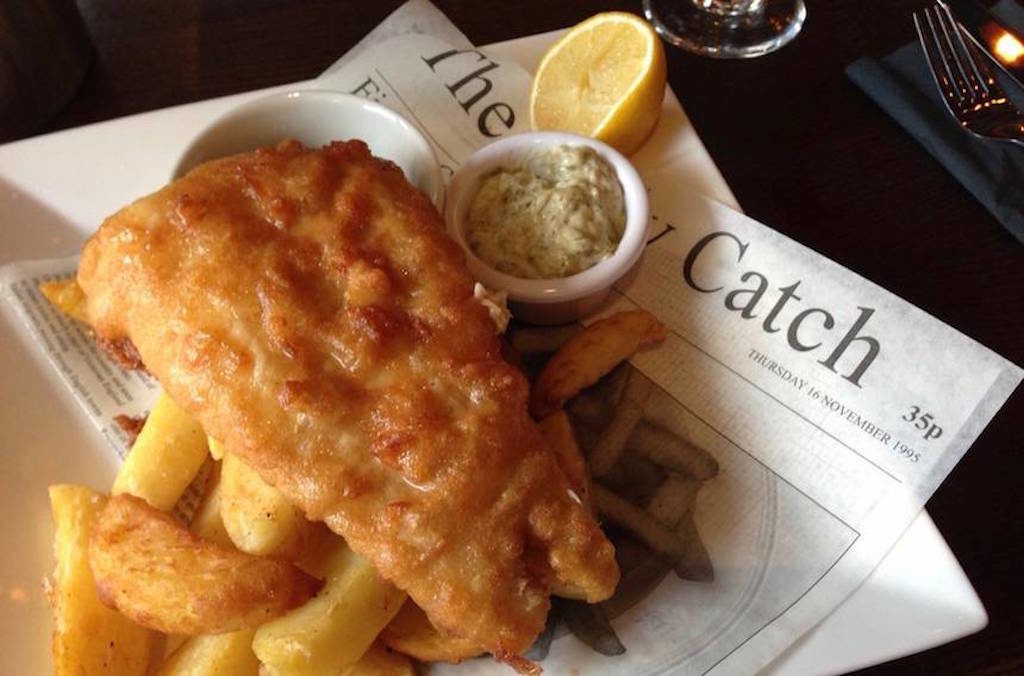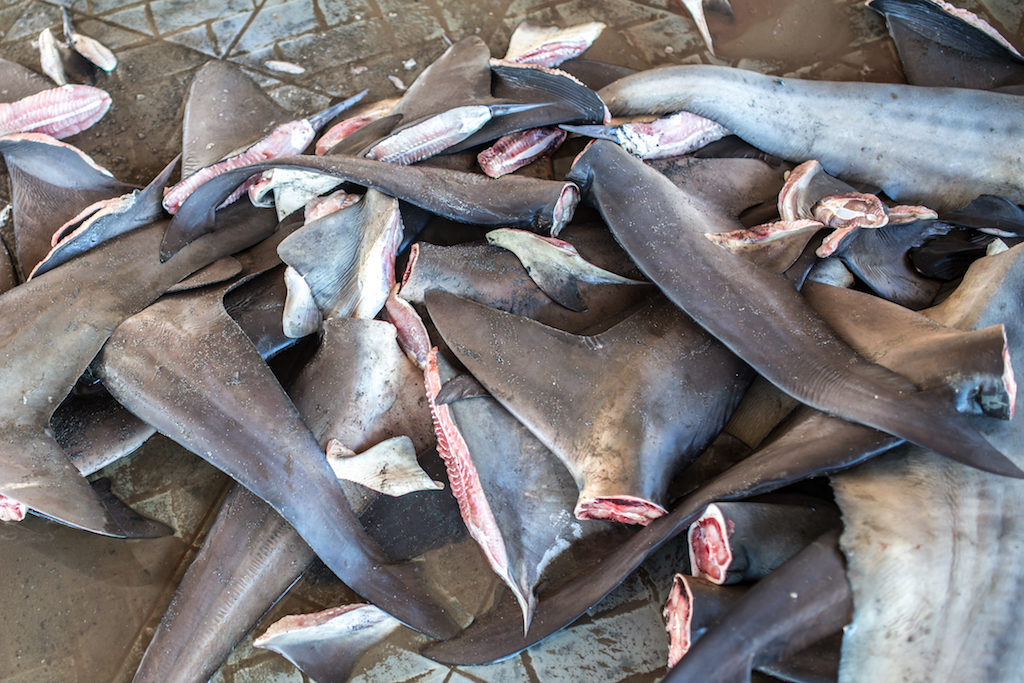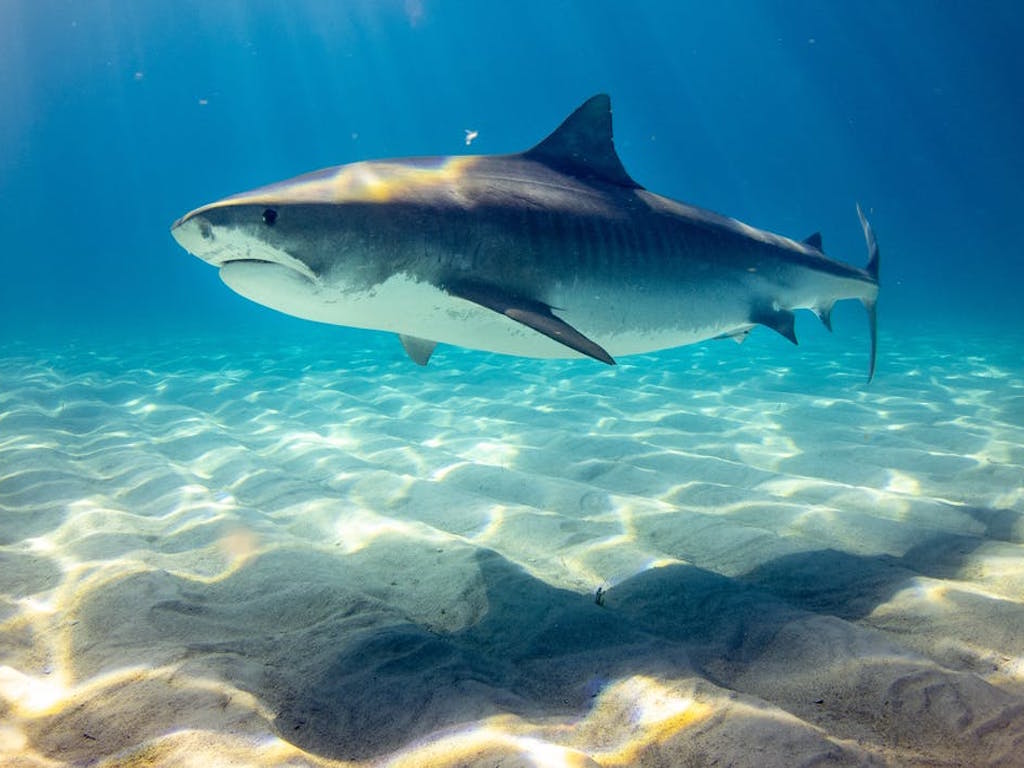5 Mins Read
Most of us have no idea how important sharks are to the health of our oceans. This may explain why many of us don’t spend any time thinking about the fact that hundreds of millions of these majestic creatures are killed by humans every year for no good reason. Many species are now critically endangered with some on the verge of extinction. Without sharks, the future of our marine ecosystem would be gravely imperiled. Sharks play a vital role underwater, keeping other fish species in check, helping to remove the weak and the sick as well as keeping the balance with competitors which ensures species diversity. In honor of World Animal Day, we’re sharing 10 shocking shark facts that every eco responsible human should know.
A special thanks to Andrea Richey, Chief Education Officer at HK Shark Foundation, for helping bring some of these facts to our attention.
1) We Kill 100 Million Sharks Every Year, Officially
This is a very conservative estimate from the journal Marine Policy and already, this figure equates to 11,000 sharks killed every hour, and 190 per minute. Unofficially, marine activists believe the number to be closer to 300 million sharks killed yearly!
2) Sharks Aren’t Just Killed For Their Fins
The shark fin trade, fuelled by the demand for shark fin soup lovers, is no doubt a huge reason why sharks are being killed by the millions. But did you know that there are countries that also consume shark meat, and shark products are used in many? Brazil, for instance, is the country that consumes the most shark meat.
3) There May Be Sharkskin In Your Luxury Leather Products
Shockingly, Italy is the world’s second biggest importer of shark skin, where it is used by the fashion industry to make leather products. Closer to home, many Korean beauty and cosmetic brands also use squalene, a substance from shark liver oil touted for its skin enhancing benefits, in cosmetic products such as bath oils, hair products, eye makeup, lipstick, suntan and sunscreen products.
4) Love Fish & Chips? Then You’ve Probably Tasted Shark Meat

Most marketeres and F&B operators are smart enough to know that many consumers would find the thought of consuming shark meat repellent. So they simply don’t disclose it. Shark meat is marketed as fish using other names in many fish and chip shops. Recent reports have revealed that endangered species of shark meat are present in most fish and chip shops in the UK where they are marked as ‘rock salmon.’. In Australia, shark meat – including ones that are under threat – is sold as “flake”. Meanwhile, meat from rig sharks is sold in New Zealand as “lemon fish” or “spotted dogfish.” Not only are the omissions egregious, it’s a health scandal! Most shark tests very high in mercury. IT is
5) 50% Of The World’s Shark Fins Are Exported Through Hong Kong’s Ports
Of the million sharks killed for their dorsal fins annually, half of the entire global trade comes through Hong Kong, placing the city at the centre of the lucrative undercover industry. While some shipping companies and airlines have publicly committed to to turn away shark fin shipments, the reality is that industry players are easily able to fool inspectors with forged documents and clever subterfuge. At the end of the day, until the demand stops, sharks will continue to get killed.
6) Almost All Hong Kong Seafood Restaurants Still Serve Shark Fin
Most of us may be surprised to learn that 98% of seafood restaurants continue to serve shark fin soup, according to a 2016 survey conducted by the Hong Kong Shark Foundation, which involved almost 400 restaurants. Many restaurants may agree to take shark fin off their menu, but undercover visits have shown that all customers need to do is request it on special order- it’s still very much available. On top of the restaurants, it is also all too common to see dried shark fin in the dried food shops that line Sai Ying Pun and Sheung Wan streets.
7) 30 Sharks Die For Every Wedding That Serves Shark Fin Soup

Traditional Chinese wedding banquets often feature what is called the “big four,” sea cucumber, fish maw, sea anemone and shark fin, ingredients that are meant to promise everything from prosperity to good health for the newlyweds. But this superstition comes at a heavy cost – for every wedding in Hong Kong that serves shark fin soup, an estimated 30 sharks have to be killed, with many activists insisting that the figure is on the low side. Not only is this custom uneccessary from a culinary point of view- most people describe shark fin as tasting of nothing- even more sad is how wasteful the practice is. The sharks are killed for for their fin and then the bodies thrown back at sea.
8) There Are Over 400 Shark Species & Over 30% Of Them Are Already Threatened
Most of the 400 different shark species that exist can be found in coastal regions in every ocean in the world. But human activities have decimated the global shark population. One 2014 analysis found that over 30% of sharks, rays and related species are facing an “extinction countdown.” Five years later, the statistic is no doubt far worse.
9) Sharks Existed Before Dinosaurs
These ancient fish have been around for a long time: some of the earliest fossil evidence for sharks are a couple of scales that date back to the Late Ordovician Period, over 450 million years ago, making them older than dinosaurs. To put things in perspective, we humans have been around for around 200,000 years, a tiny fraction and yet we may drive these creatures to extinction!
10) YOU Can Make A Difference
There are a number of ways you can help save and protect sharks. The Hong Kong Shark Foundation has listed a number of them, including signing petitions, participating in pledges and giving donations and become an HKSF volunteer.
Lead image courtesy of Inverse.




